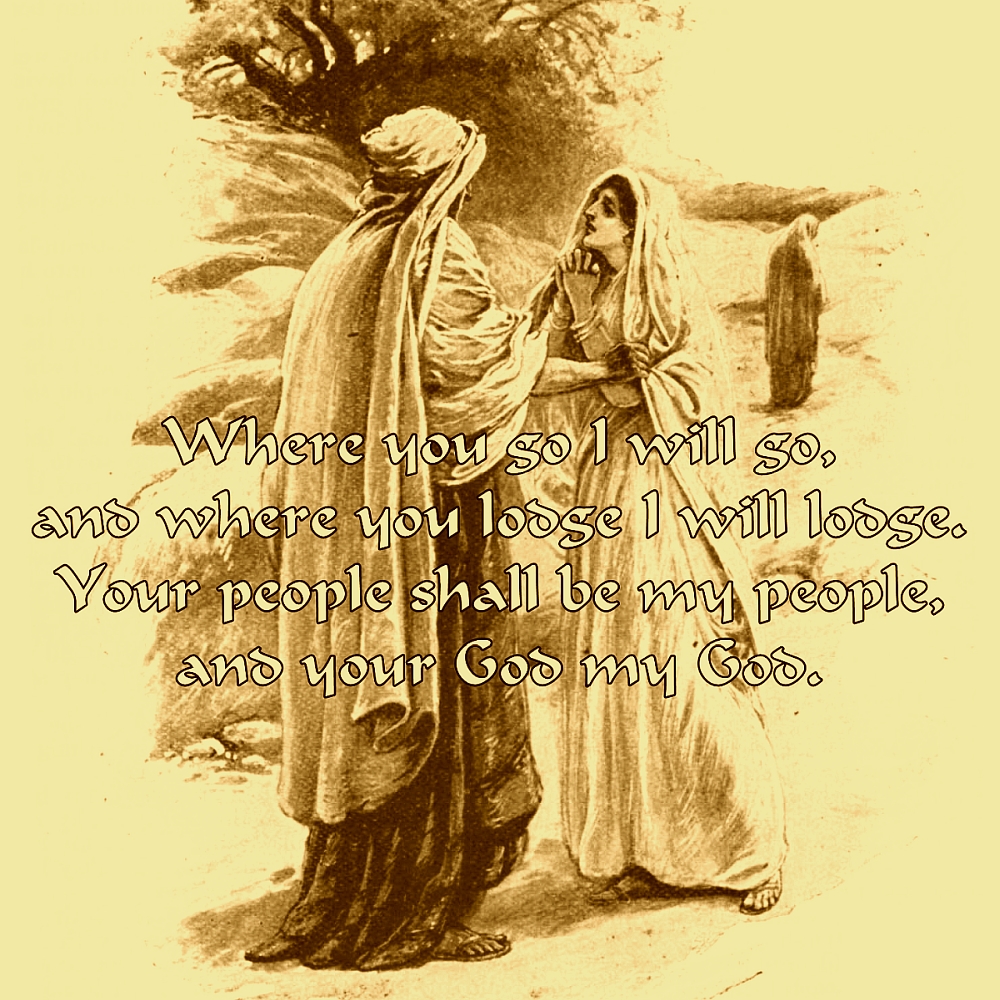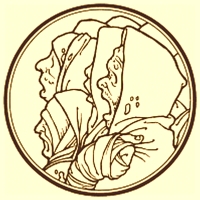Pentecost 18 Sermon: Until Death Us Do Part
18th Sunday After Pentecost — Proper 23C
13 October AD 2019
Title: Click to hear the MP3 of Until Death Us Do Part.
 Summary: Initially established through Lot’s incest after Sodom was destroyed, Moab fully earned the Lord’s rejection by hiring the prophet Balaam to curse Israel. Yet the Lord loved these outcasts and wanted them back as His own.
Summary: Initially established through Lot’s incest after Sodom was destroyed, Moab fully earned the Lord’s rejection by hiring the prophet Balaam to curse Israel. Yet the Lord loved these outcasts and wanted them back as His own.Through the love shared by Ruth and Naomi — a love flowing from His own boundless mercy and grace — He received Moab into His chosen people. He did so through the unlikely vessel of a Moabite woman. Ruth’s selfless love for her mother-in-law and her promise to never forsake her led her to travel back to Judah with Naomi.
There, God granted her a righteous and loving husband who more than cared for both her and Naomi. And beyond merely showing that He cared even for these often-despised Gentiles, the Lord included Moab in the line of the coming Davidic kingship and thus into the earthly family of the coming Savior.
Text: In the days when the judges ruled there was a famine in the land, and a man of Bethlehem in Judah went to sojourn in the country of Moab, he and his wife and his two sons. The name of the man was Elimelech and the name of his wife Naomi, and the names of his two sons were Mahlon and Chilion. They were Ephrathites from Bethlehem in Judah.
They went into the country of Moab and remained there. But Elimelech, the husband of Naomi, died, and she was left with her two sons. These took Moabite wives; the name of the one was Orpah and the name of the other Ruth. They lived there about ten years, and both Mahlon and Chilion died, so that the woman was left without her two sons and her husband.
Then she arose with her daughters-in-law to return from the country of Moab, for she had heard in the fields of Moab that the Lord had visited his people and given them food. So she set out from the place where she was with her two daughters-in-law, and they went on the way to return to the land of Judah.
But Naomi said to her two daughters-in-law, “Go, return each of you to her mother's house. May the Lord deal kindly with you, as you have dealt with the dead and with me. The Lord grant that you may find rest, each of you in the house of her husband!” Then she kissed them, and they lifted up their voices and wept.
And they said to her, “No, we will return with you to your people.”
But Naomi said, “Turn back, my daughters; why will you go with me? Have I yet sons in my womb that they may become your husbands? Turn back, my daughters; go your way, for I am too old to have a husband. If I should say I have hope, even if I should have a husband this night and should bear sons, would you therefore wait till they were grown? Would you therefore refrain from marrying? No, my daughters, for it is exceedingly bitter to me for your sake that the hand of the Lord has gone out against me.”
Then they lifted up their voices and wept again.
And Orpah kissed her mother-in-law, but Ruth clung to her. And she said, “See, your sister-in-law has gone back to her people and to her gods; return after your sister-in-law.”
But Ruth said, “Do not urge me to leave you or to return from following you. For where you go I will go, and where you lodge I will lodge. Your people shall be my people, and your God my God. Where you die I will die, and there will I be buried. May the Lord do so to me and more also if anything but death parts me from you.” And when Naomi saw that she was determined to go with her, she said no more.
So the two of them went on until they came to Bethlehem. Ruth 1:1-19a
Scripture quoted from The Holy Bible, English Standard Version®, © 2001 by Crossway Bibles, a publishing ministry of Good News Publishers. Used by permission. All rights reserved.
Audio: Click to hear the MP3 of Until Death Us Do Part.
NB: A few people have had problems trying to play the inline audio with Windows Media Player. If this occurs, you can either change to QuickTime or another default browser player, copy and paste the link directly into a selected player, or download it to your computer, where it seems to work regardless of which player. Several folks have suggested VLC Player from VideoLAN.
Other Readings: Psalm 111; 2 Timothy 2:1-13; Luke 17:11-19
Labels: david, gentiles, love, old testament, pentecost 18, proper 23, reconciliation, Ruth 1, salvation, series c, until death us do part





